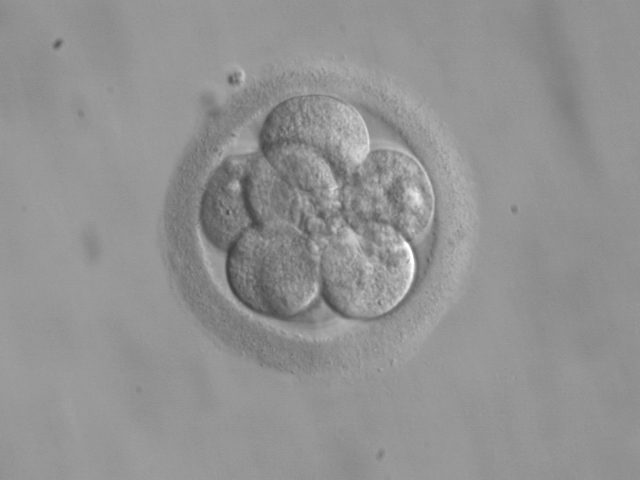Frozen Embryo Transfer Delhi: The Ray of Hope for Infertile Couples?
When it comes to the in vitro fertilization process commonly known as IVF you may have heard about the frozen embryo transfer Delhi or you may have learned about it through your doctor but do you know what it really means? Or the reasons why you should go for it? If no then, here is the blog post that can help to comprehend how the process works and ways you can benefit from it.
What is the frozen embryo transfer Delhi?
A frozen embryo transfer is the type of IVF treatment where a cryopreserved embryo that is created through the IVF cycle is thawed and transferred to the patient’s uterus. The frozen or cryopreserved embryo can be part of the previous IVF cycle that is stored for future use or it can also belong to the donor.
When does a woman require a frozen embryo transfer in Delhi?
The frozen embryo transfer Delhi is required when it is not possible to perform the fresh embryo transfer. It takes place in a situation(s) when the patient is ill or going through uterine bleeding that could result in the fresh embryo transfer being less likely to achieve a successful pregnancy. Other possible reasons behind the recommendation of frozen embryo transfer are given below:
- Ovarian hyperstimulation syndrome (OHSS): the frozen embryo transferred is recommended if a woman is suffering from Ovarian hyperstimulation syndrome (OHSS). It is the risk of the fertility drug that can be dangerous and can lead to swelling and pain in the ovaries which can be life-threatening.
- Uterine polyp: The abnormal growth in the lining of the uterus can jeopardize the implantation due to its size and location.
- Endometriosis: It is the condition when tissues that are similar to the tissues that form in the lining of the uterus start growing outside the uterus cavity. Endometriosis can directly or directly affect the implantation of embryo transfer. Studies have shown that frozen embryo transfer after long down-regulation results in better outcomes in clinical pregnancy rates in patients with endometriosis.
- Endometrial cavity fluid (ECF): In some cases, fluid accumulates within the cavity of the uterus that leads to failure of implantation. In such a situation, frozen embryo transfer is the only available solution.
- Fertility preservation: Sometimes things don’t go as we plan and life often falls into the pitfall of diseases that can affect fertility in both men and women. Frozen embryo transfer allows couples to preserve their fertility which may or may not be affected through serious medical treatments for diseases like cancer, infections, diabetes, STD, and more.
- Preimplantation genetic screening: This genetic screening is vital for patients with a previous history of genetic disease, recurrent miscarriage, and past IVF failure. Performing regular IVF can lead to a higher risk of failure; hence, genetic screening of embryos followed by frozen embryo transfer is a great option for such patients.
Due to any of the above conditions, the process of frozen embryo transfer will be recommended to the patient as the only solution to achieve a successful pregnancy.
When does one need Donor embryos?
If a woman is unable to develop the required eggs due to any infertility cause or genetic disorder then, she can opt. for the donor embryo transfer. Similarly, if the male partner suffers from some genetic or has very poor semen quality or couple with a history of recurrent IVF failure due to poor egg or sperm quality or both are the candidates for donor embryo IVF. While most of the embryos are used by the one who created them, there are plenty of frozen embryos available for donation to aid infertile couples.
How are embryos screened before the transfer?
The SCI IVF Hospital Delhi takes special care with couples who have a previous history of genetic diseases. In any case, the professionals conduct Preimplantation genetic diagnosis (PGD) and Preimplantation genetic screening (PGS) -the advanced reproductive technologies to screen embryos for any genetic diseases. As the process is complex and takes more time, all the embryos are cryopreserved. Once the results of the screenings are out, the decision can be made on which embryo should be transferred for a healthy pregnancy.
Frozen embryo transfer vs. fresh embryo transfer: which one is better
Although there is a never-ending debate on the topic of whether fresh or frozen embryos are good to obtain a successful pregnancy, many professionals believe that an infertile couple should go with frozen embryo transfer over the fresh one. any specific reason behind the suggestion well, there are plenty of them and some of them are given below:
Frozen Embryo transfer Delhi increases the success rate
When it comes to the success rate with the frozen embryo transfer, it is quite higher compared to the fresh IVF cycle. Also, factors like the age of the women also contribute to the success rate. For instance; women at the age of 30 have equal chances of getting pregnant from both fresh and frozen embryo transfer but as they age the chances of pregnancy with a fresh cycle start declining. Hence, the frozen embryo transfer is a viable solution at any age.
The survival rate is higher with frozen embryos transfer Delhi
Over the last few years, experts have observed that frozen embryo transfer may produce better results. It is because the whole stimulation medication and egg collection process can traumatize the patient, making it ‘Not’ an ideal condition to process with the transfer. doing this can increase the risk of miscarriage which is not good for the physical or mental condition of the patient. Therefore, many renowned IVF clinics like SCIIVF recommend freezing the embryos and transferring them through the FET cycle in a month or two.
You can give your IVF child a sibling in the future with Frozen Embryo Transfer
During the IVF when the eggs are collected for the fertilization process the patient has the option to free the remaining embryo once they achieve the pregnancy. The Freeze embryos can later be used through the FET-IVF cycle to give your child a sibling. The other option is to donate the remaining embryos to help couples who are going through infertility.
Frozen embryo transfer Delhi: Before, during, and after
There are several safe processes available to aid the selection of embryos before transfer. Professionals can either go with the non-invasive methods such as metabolic profiling, morphological grading, or invasive methods like; Preimplantation genetic diagnosis (PGD). If many healthy embryos are developed then those that are not being transferred can be frozen.
Process of embryo transfer
The process of embryo transfer is painless and can be performed without any sedative. During the process, the doctor will insert the speculum into the vagina to keep the walls open for the entire process. With the help of ultrasound, the doctor then will pass the catheter through the cervix into the womb. From there the healthy embryo is then passed into the womb.
Although it is a short-term process some women feel a slight discomfort as a result of having a speculum inserted or from having a full bladder which is compulsory for the ultrasound.
After the transfer
The check-up will take place 2 weeks after the transfer to check if it was successful or not. Even after the successful implantation, it is common to experience bloating, cramping, and vaginal discharge.
Final words on Frozen Embryo Transfer Delhi
Some of the recent studies have shown that compared to fresh embryo transfer, the chances of pregnancy are higher with the frozen embryo transfer. Studies also highlight that pregnancies that are conceived through the frozen embryos often have better outcomes as a baby. Also, women who want to conceive in the near future can choose to freeze their embryos to use them over time to conceive.
The one possible theory behind this is that supraphysiological hormone levels created by ovarian stimulation may reduce endometrial receptivity. The second possible reason is that embryos that survive through the phase of cryopreservation are stronger and can lead to a healthy pregnancy.
Whatever the reasons behind the success rate, you can always choose to go with frozen embryo transfer after consulting with your professional at the SCIIVF. For further information regarding the IVF process please visit the website.

